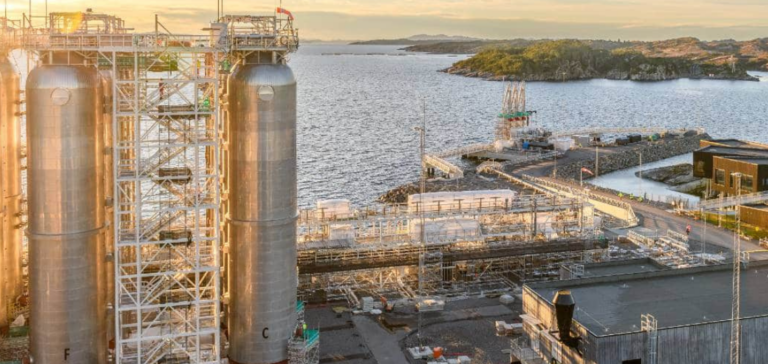In 2025, the world will witness a revolutionary event in the fight against global warming: the first cross-border transport of CO2. Yara International, which specializes in fertilizer production, has taken a crucial step forward by signing a contract to transfer a significant quantity of CO2 from a Dutch plant to Norway for underwater storage.
The Central Role of the Sluiskil Ammonia Plant
The Sluiskil ammonia plant in the south-west of the Netherlands will play a central role in this process. Already engaged in capturing a large proportion of its CO2 for industrial applications, it will become the main source of CO2 for this project. The captured CO2 will be transported by sea to Øygarden, Norway, where the Northern Lights site, currently under construction, will inject and store it some 2,600 meters below the seabed of the North Sea.
Yara and Northern Lights: A Key Partnership for CCS
This ambitious project, in partnership with Northern Lights – a joint venture of oil giants Equinor (Norway), Shell (Anglo-Dutch), and TotalEnergies (France) – represents a major milestone in the use of CO2 capture and storage (CCS) technology. Indeed, this technology, considered a key to countering global warming, involves capturing CO2 emissions at source, such as factory chimneys, and storing them in geological reservoirs after liquefaction.
Northern Lights storage capacities and targets
Svein Tore Holsether, Yara’s Managing Director, underlines the importance of this project, calling it
“a milestone for the decarbonization of Europe’s hard-to-decarbonize industries”.
The contract, which was announced in August 2022 and formally signed recently, will come into effect in 2025. From 2026, it will store up to 800,000 tonnes of CO2 produced by the Sluiskil plant each year.
Challenges and prospects for CCS technology
Although CCS technology is complex and costly, it is supported by renowned experts such as the Intergovernmental Panel on Climate Change (IPCC) and the International Energy Agency. The latter consider CCS to be essential to curbing the rise in global temperatures. However, some environmental activists are voicing their concerns, fearing that CCS could prolong the use of fossil fuels, divert necessary investment from renewable energies, or present risks of leakage.
This project is not limited to Yara; other key players, such as Danish energy company Ørsted and Germany’s Heidelberg, also plan to participate, sending CO2 generated by biomass power plants and a cement plant to Northern Lights from 2025 or 2026. However, despite these concerns, dozens of CCS projects are under development around the world, testifying to the growing interest in this technology.
This cross-border CO2 transport and storage project, scheduled for 2025, represents a significant step forward in industrial decarbonization efforts. Indeed, it illustrates the growing commitment to the use of innovative technologies to combat climate change, while raising important questions about the long-term implications of such initiatives.






















